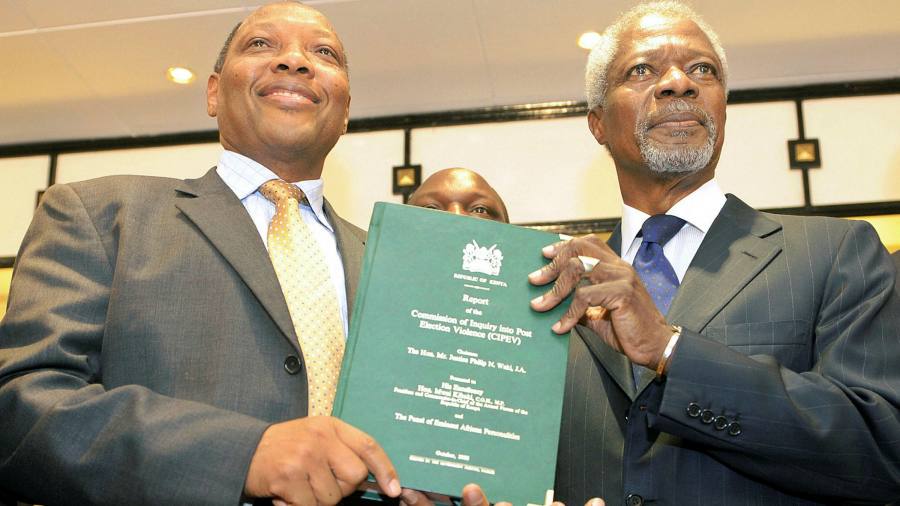[ad_1]
The writer is a commentator based in Nairobi
Twelve years ago, Kenya’s political system, previously regarded as one of the most stable in Africa, stood on the brink of collapse. A disputed election, combined with simmering ethnic tension, was the proximate cause, and it led to violence that left at least 92 people dead. I often found myself recalling this moment in Kenyan history as I watched the US election last year, the storming of the Capitol this month that left five dead, and last week’s inauguration of President Joe Biden. There are so many parallels.
Comparing the US to Kenya may seem a stretch. One is a superpower and an established democracy; the other, an equatorial republic in a supposedly coup-riddled continent. Yet it is notable how often Americans have taken to questioning their own republic’s solidity. As Mr Biden said last week: “We’ve learned again that democracy is precious and democracy is fragile.†That’s true of all countries, everywhere.
In Kenya, the disputed election was settled by international mediation, which eventually produced an agreement between the competing sides. What was most interesting about the agreement, though, is that it was about far more than establishing who won. That, by itself, was largely seen as a futile exercise. Similarly it was not enough to stop the violence without addressing the underlying and systemic problems that caused the dispute in the first place.
An ambitious road map to creating a sturdier Kenya was drawn up. From enacting a new constitution and establishing a truth commission, to excavating historical trouble spots and reforming the electoral system, the aim was to prevent the chance of violence and collapse from rising again.
What does this have to do with the US? Donald Trump’s presidency undermined many of the long-cherished myths, traditions and norms that underlie the stability of America’s political system. Yet, perhaps because of the US’s persistent sense of its innate superiority, there is little obvious talk of the need for fundamental reforms. I can’t help but wonder what would happen if the US undertook the same sort of self-examination that Kenya and much of Africa have attempted over the decades.
“Reform!†is the oft-repeated mantra whenever tyranny rears its ugly head in Africa. From the late 1980s, 20 years after the first wave of colonial withdrawals, change swept across the continent. For two decades, it had been racked by instability, military coups and oppressive, kleptocratic governments. But with the end of the cold war, local political entrepreneurs and reform-minded technocrats raised their voices.
A rolling series of demands, including for state reform, new constitutions, term limits and independent election bodies followed. Since then, progress has been spotty as recent, contested elections in Uganda, Guinea and Côte d’Ivoire show. Yet it is indisputable that the overall democratic situation is much improved.
In Gambia, a brutal dictator has been forced to accept election losses. Countries such as Malawi, Senegal and Botswana have regularly had peaceful transitions of power. Of course, African countries vary enormously, but the pitfalls of the long reform processes they faced were often the same. Elites may often seek to subvert institutional change to retain privilege and advantage; in short, a system they can manipulate.
I believe there are many lessons here for the US. But the most important that comes to my mind is the importance of humility. That is not a characteristic often associated with the US. Many Americans seem to view Mr Trump’s presidency as an aberration instead of the predictable consequence of systemic dysfunction. As a result, the country appears to be blind to its need for fundamental reform. Change always requires faith in the possibility of a better tomorrow. But for a nation such as the US that always thinks of itself as being at the top, the risk is that the only way forward is down.
This article has been amended since first publication to reflect the fact that five, not six, people died as a result of the attack on the US Capitol
[ad_2]
Source link






